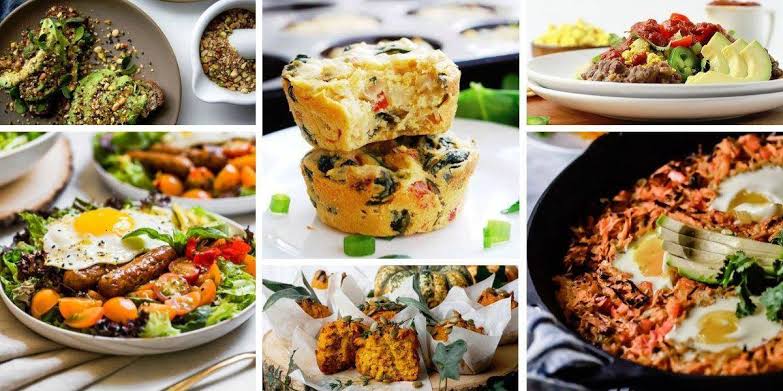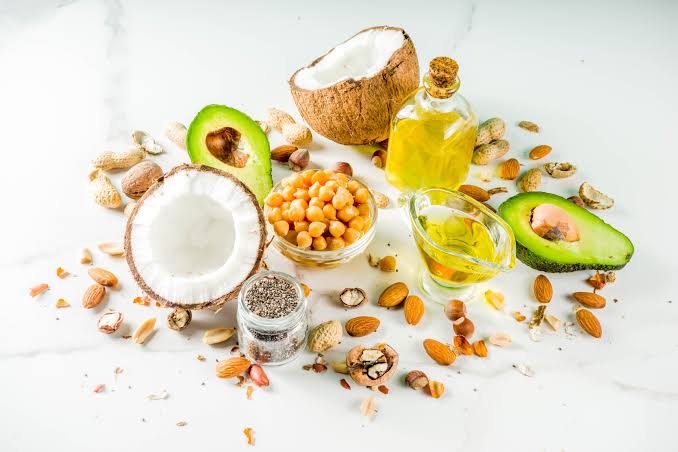What To Eat For Breakfast Before A Hike Vegetarian
Dieting plays a crucial role in preparing for an enjoyable and energizing hiking experience. When it comes to hiking, your body requires an abundance of nutrition to power through the trails and keep you going strong.
I am a non-vegetarian and I have a variety of food choices. However, I also admire hikers who follow a vegetarian diet. It’s quite a commendable step to maintain a vegetarian diet while pursuing the physically demanding activity of hiking.

Vegetarians face a unique set of challenges when it comes to maintaining their energy levels during hikes. The absence of meat means they need to be more creative in choosing protein sources.
But don’t worry, here are plenty of plant-based options I have found. Legumes such as chickpeas, black beans, and lentils are protein powerhouses.
Nuts and seeds like almonds, walnuts, and chia seeds are not only rich in protein but also provide healthy fats to sustain your energy.
When it comes to carbohydrates, vegetarians can enjoy whole grains like quinoa, bulgur, and farro. These grains are versatile and can be used in salads or as a side dish to complement your hiking meals.
At this point, I am well aware that some of these items may not be readily available in your home. However, I recommend them because they will help you sustain your hiking routine in the long run.
If you do not prioritize a proper diet plan, hiking may not be a viable activity for you in the long term. You can select any of these items in your diet according to availability and need
Carbohydrates Plan

| Meal | Breakfast | Lunch | Dinner |
|---|---|---|---|
| Option | Oatmeal with honey, berries, and bananas, Whole Wheat Toast with peanut butter and raisins Whole-grain cereal with nuts and dried fruits | Vegetarian Sandwich with hummus, avocado, cucumbers, and tomatoes Quinoa Salad with chickpeas and lemon-tahini dressing Wrap or Burrito with black beans, brown rice, salsa, and veggies | Pasta with tomato-based sauce, sautéed vegetables, and parmesan cheese Rice Bowl with stir-fried tofu or tempeh, broccoli, carrots, and soy-ginger sauce Roasted or mashed potatoes seasoned with herbs |
| Purpose | Provide energy for the hike | Balance of carbs, protein, and veggies for sustained energy | Nourishing meals for recovery and replenishment |
Breakfast
Carbohydrates in the morning are essential to provide you with the energy you need to start your hike. Consider these options:
Oatmeal
A bowl of warm oatmeal topped with honey, fresh berries, and sliced bananas is a hearty and energizing breakfast.
Whole Wheat Toast
Two slices of whole wheat toast with peanut butter and a sprinkle of raisins is a quick and portable choice for veg hikers.
Cereal
Choose whole-grain cereals with added nuts and dried fruits for a convenient breakfast option.
Lunch
For lunch, focus on a balance of carbohydrates, protein, and vegetables to keep your energy levels stable during your hike. Here are some options for veg hikers:
Vegetarian Salad
Whole grain bread filled with hummus, avocado, sliced cucumbers, and tomatoes is a tasty and filling choice.
Quinoa Salad
A quinoa salad with chickpeas, diced vegetables, and a lemon-tahini dressing is packed with carbohydrates and protein.
Wrap or Burrito
Go for a whole wheat wrap or tortilla filled with black beans, brown rice, salsa, and your choice of veggies for a satisfying meal.
Dinner
Dinner should be a nourishing meal to help you recover from your day of hiking. Consider these carbohydrate-rich options:
Pasta
Whole wheat pasta with a tomato-based sauce, sautéed vegetables, and a sprinkle of parmesan cheese is a comforting choice.
Rice Bowl
Brown rice with stir-fried tofu or tempeh, broccoli, carrots, and a flavorful soy-ginger sauce is both nutritious and filling.
Potatoes
Roasted or mashed potatoes seasoned with herbs can be a hearty and simple dinner option.
Protein Plan for Vegetarian Hikers

| Meal | Breakfast | Lunch | Dinner |
| Option | Greek Yogurt with honey, nuts, and berries Scrambled Eggs with diced vegetables | Cheese and Bean Quesadilla with whole wheat tortillas Tofu Stir-Fry with colorful veggies | Chickpea Curry with spices served over brown rice Vegetarian Chili with kidney beans, black beans, and lentils |
| Purpose | Protein-rich start to the day | Satisfying and protein-packed lunch | Flavorful and protein-packed dinner |
Here’s a protein plan for vegetarian and vegan hikers, along with some easily relatable food products for each meal:
Breakfast
Greek Yogurt
A bowl of Greek yogurt topped with honey, nuts, and fresh berries provides a protein-rich and delicious start to your day.
Scrambled Eggs
Scramble two eggs with diced vegetables like bell peppers and spinach for a protein-packed breakfast.
Lunch
Cheese and Bean Quesadilla
Make a quesadilla with whole wheat tortillas, black beans, and cheese for a satisfying lunch option.
Tofu Stir-Fry
Cube tofu and stir-fry it with colorful vegetables and your favorite sauce for a protein-rich stir-fry.
Dinner
Chickpea Curry
A chickpea curry with plenty of spices and served over brown rice is a flavorful and protein-packed dinner.
Vegetarian Chili
Enjoy a bowl of vegetarian chili filled with kidney beans, black beans, and lentils, topped with grated cheese and a dollop of sour cream.
Protein Plan for Vegan Hikers

| Meal | Breakfast | Lunch | Dinner |
| Option | Vegan Protein Smoothie with plant-based protein powder, almond milk, banana, and spinach Vegan Oatmeal with almond milk, almond butter, chia seeds, and fruit | Hummus and Veggie Wrap with cucumbers, bell peppers, and carrots Lentil Salad with diced tomatoes and lemon-tahini dressing | Quinoa and Black Bean Bowl with roasted veggies and avocado dressing Chickpea and Spinach Curry served over brown rice |
| Purpose | Quick and protein-rich vegan breakfast | Protein-rich and vegan-friendly lunch | Satisfying and protein-packed vegan dinner |
Breakfast
Egan Protein Smoothie
Blend plant-based protein powder, almond milk, banana, and spinach for a quick and protein-rich breakfast.
Vegan Oatmeal
Make oatmeal with almond milk and top it with almond butter, chia seeds, and sliced fruit for a vegan-friendly protein boost.
Lunch
Hummus and Veggie Wrap
Spread hummus on a whole wheat wrap and fill it with sliced cucumbers, bell peppers, and shredded carrots.
Lentil Salad
Prepare a lentil salad with diced tomatoes, red onion, and a lemon-tahini dressing for a protein-rich and vegan-friendly lunch.
Dinner
Quinoa and Black Bean Bowl
Create a bowl with cooked quinoa, black beans, roasted vegetables, and a flavorful avocado dressing for a satisfying vegan dinner.
Chickpea and Spinach Curry
Cook chickpeas and spinach in a rich tomato-based curry sauce and serve it over brown rice for a protein-packed vegan meal.
When following a vegan diet, it’s essential to incorporate plant-based protein sources such as legumes (beans, lentils, chickpeas), tofu, tempeh, seitan, quinoa, and various nuts and seeds.
These protein-rich meal ideas cater to both vegetarian and vegan hikers, ensuring you have the necessary protein to support your hiking adventures while adhering to your dietary preferences.
Fats
Here are some common household items for both vegans and vegetarians that are sources of healthy fats for hikers:

Avocado
Avocado is a versatile source of healthy fats. You can add sliced avocado to sandwiches, and salads, or make guacamole to spread on whole-grain crackers.
Nuts
Various nuts such as almonds, walnuts, and cashews are packed with healthy fats. Carry a mix of nuts as a convenient and energy-boosting hiking snack.
Seeds
Chia seeds, flaxseeds, and pumpkin seeds are rich in healthy fats and can be sprinkled on oatmeal, yogurt, or included in homemade energy bars.
Nut Butter
Peanut butter, almond butter, and other nut or seed butter are excellent sources of healthy fats. Spread them on whole wheat bread or use them as a dip for apple slices or carrot sticks.
Olive Oil
Olive oil is a staple in many kitchens. Use it for sautéing vegetables or drizzle it on salads for a dose of healthy monounsaturated fats.
Coconut Oil
Coconut oil is a plant-based saturated fat that can be used in cooking or baking. It’s especially handy for making energy-boosting coconut-based snacks.
Soy Products
Tofu and tempeh, which are soy-based, contain healthy fats and are versatile ingredients that can be included in various hiking meals.
Dark Chocolate
Go for dark chocolate with a high cocoa content (70% or more). It contains healthy fats and can satisfy your sweet cravings during a hike.
Plant-Based Dairy Alternatives
Look for plant-based milk alternatives like almond milk, coconut milk, or soy milk. These can be used in smoothies or enjoyed with cereal for added healthy fats.
Canned Coconut Milk
Canned coconut milk is a creamy and high-fat addition to curries or soups. It’s lightweight and convenient for backpacking meals.
Vegetarian Hikers Problems On Trails
Vegetarian hikers often encounter several challenges related to their diet while exploring the outdoors. Here are some common challenges:
Protein Sources
Finding sufficient protein sources is a challenge for vegetarians. Unlike meat-eaters who have easy access to animal proteins, vegetarians must rely on plant-based options like beans, lentils, tofu, and tempeh, which sometimes require more preparation.
Meal Variety
Maintaining meal variety is crucial for enjoyment during extended hiking trips. Vegetarian hikers may struggle with the risk of repetitive meals due to limited protein and flavor options in the wilderness.
Weight and Volume
Plant-based foods are bulkier and heavier than their non-vegetarian counterparts, which is a concern for hikers aiming for ultralight backpacking.
Vegetarian hikers may need to prioritize calorie-dense foods and choose dehydrated options to save space and weight.
Limited Dining Options
In remote or less-developed areas, finding suitable vegetarian food options is a challenge. Vegetarian hikers may need to plan their trips carefully and carry enough supplies to ensure they have access to nutritious meals.
Nutrient Balance
Ensuring a well-balanced diet with essential nutrients like vitamin B12, iron, and omega-3 fatty acids can be more complex for vegetarians. They may need to pay extra attention to their dietary choices or consider supplementation.
Conclusion
Dieting is a fundamental aspect of preparing for a successful hiking adventure.
Whether you’re a non-vegetarian or a vegetarian hiker, your food choices play a pivotal role in ensuring you have the energy and stamina to conquer the trails.


